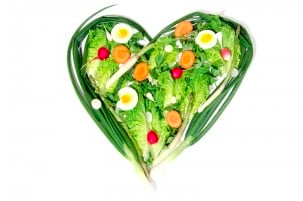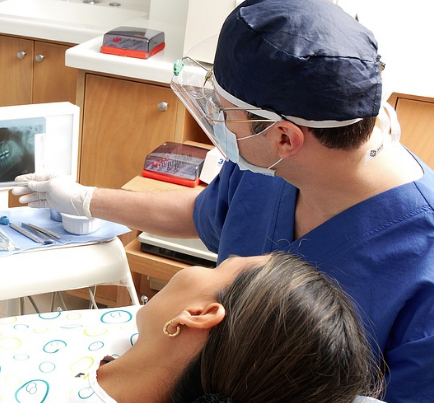Evidence Suggests That a Change in Diet May Help Relieve Vertigo
New evidence suggests that changing what you eat can actually help relieve vertigo symptoms. Based on a sample of 487 individuals, it was determined “extremely important to reduce the intake of fats and carbohydrates and increase the fiber intake to stabilize triglycerides and thus minimize harmful effects on the inner ear. Food readjustment is suggested in patients with BPPV.”
If you suffer from vertigo, take a look at all the foods that can help you overcome your symptoms, as well as the foods that you should avoid.
Food that Helps with Vertigo
Vitamin B6
B6 is one of the most important vitamins you’ll ever eat. Regular amounts of vitamin B6 give your immune system a boost and regulate the nervous system. A lack of vitamin B6 can lead to health issues related to the skin, nerves and the circulatory system. New reports indicate that vitamin B6 can also be used to relieve dizziness and nausea. Foods rich in vitamin B6 include hearty grains such as breakfast cereals, milk, eggs, cheese, salmon, tuna, and certain vegetables such as carrots, peas, and potatoes.
Vitamin C
Widely known for its immune-boosting capabilities, vitamin C has also been cited as a tool to relieve the symptoms of vertigo. A study conducted at the Hiroshima University of Medicine in Japan found that a daily dose of 600 mg of vitamin C along with 300 mg of glutathione could help relieve vertigo in most patients. Vitamin C is found in citrus fruits, green peppers, cantaloupe, broccoli, tomatoes, berries, and green leafy vegetables.
Ginger
Ginger root has long been used to treat upset stomach and indigestion. It shouldn’t be that much of a surprise that ginger can also help calm nausea related to vertigo. Raw ginger root, ginger herbal teas, and herbal supplements all have a history of combating stomach pains, digestive issues, dyspepsia (heartburn and bloating after a meal) and promoting a healthy appetite.
Drink the proper amount of water
It’s been reported that dehydration can trigger vertigo, so drinking the proper amount of water can help. There are many different opinions on how much water to drink daily, but one of the more popular ones is to drink eight 8-ounce glasses per day. Consult with your doctor if you have any questions.
Complex sugars (complex carbohydrates)
Complex sugars instead of simple carbohydrates. Complex carbohydrates include:
- Some vegetables and fruits
- Legumes, nuts, seeds
- Whole grains
Foods to Avoid if You Have Vertigo:
Sodium
As mentioned above, dehydration has been reported as being a trigger for vertigo. Excess salt attracts fluids and it causes your body to retain fluid, resulting in dehydration. Keeping your sodium intake below 1,000 mg a day is a general recommendation for lowering your sodium. As always, consult with your doctor.
High Amounts of Simple Sugar (simple carbohydrates)
This especially applies to drinks that contain high amounts of sugar.
Additionally, avoiding simple sugars that are found in honey, candy and other sweets, table sugar, etc. and eating more complex sugars (mentioned above) can help lower vertigo instances.
Caffeine
Caffeine is a stimulant that can also be a factor in dehydration. Avoiding caffeine, especially large amounts, can help reduce vertigo instances. Additionally, getting a full nights rest when possible has been reported for helping reduce vertigo.
Cutting MSG
MSG or monosodium glutamate is a concentrated form of sodium. Numerous reports have found that large amounts of sodium and MSG can be a trigger for Meniere’s disease, a condition linked to vertigo symptoms. MSG has been known to cause dizziness, migraines, nausea, and drowsiness, the most common symptoms of vertigo. MSG is most notably found in canned soups and other canned meals such as gravy, sauces, dressings, cheese powders, spice packs and snack items such as flavored chips.
Alcohol
Alcohol has been shown to affect the inner ear by changing the composition and volume of the fluid. Eliminating or limiting alcohol is suggested for those that suffer from vertigo. One of the direct effects of alcohol is increasing dizziness, and everyone with vertigo knows the effect of getting dizzy.
Additionally, alcohol can cause dehydration which is another vertigo trigger.
Foods that cause inflammation
Inflammation can have a direct impact on inner ear disorders. So it’s naturally better to stay away from foods that can cause or speed up inflammation. This includes:
- Red meat
- Fried foods
- Margarine and other artificial trans fats
- Precessed meat and foods
- High fructose corn syrup
Summary:
If you suffer from vertigo, first talk to your doctor to discover the cause for your vertigo. After following his or her advice, you may also want to try eating foods rich in vitamin B6, vitamin C, as well as anything containing ginger root. Additionally, remember to take a look at the list of ingredients on the back of the food you buy at the grocery store, avoiding any foods containing MSG or even large amounts of sodium.
If you are looking for natural, side-effect free ways to help your vertigo, changing your diet, isn’t the only way you can relieve dizziness, balance issues or spinning feelings. DiVertigo, an all-natural herbal supplement made with essential oils can also help. It is topically applied behind the ears and is specially formulated to help calm the irritated nerves in the ear that can cause vertigo. The great news is that DiVertigo has no side effects and can relieve vertigo in as little as a few minutes.
Whether you need to take the doctor prescribed medication, make dietary changes, or look to other alternatives to get you there, one thing is for sure, happiness includes feeling vertigo free every day.





